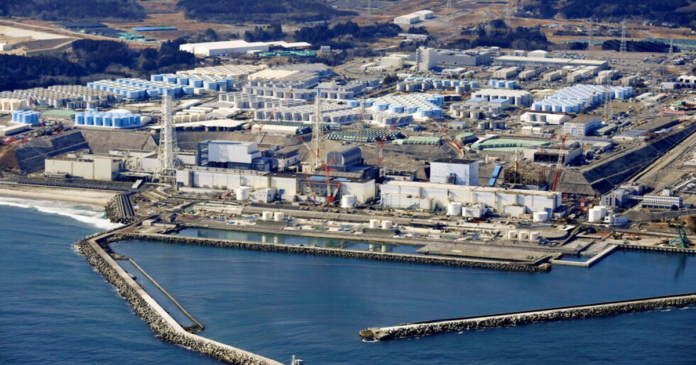Japan said on Tuesday that it will begin discharging more than 1 million metric tonnes of cleaned radioactive water from the destroyed Fukushima nuclear power plant on August 24. China has sharply criticised Japan for this decision.
Japan release water into ocean: The plan, which the Japanese government approved two years ago as essential to decommissioning the plant run by Tokyo Electric Power Company (Tepco), has also come under fire from regional fishing organisations, who worry about reputational harm and a threat to their way of life.
Prime Minister Fumio Kishida stated on Tuesday morning, “I have asked Tepco to swiftly prepare for the water discharge in accordance with the plan approved by the Nuclear Regulation Authority, and expect the water release to start on August 24, weather permitting.”
The announcement comes a day after the government claimed to have gained “a degree of understanding” from the fishing industry about the release of the water, despite a fishing group stating that it still believed the reputational harm would lead to livelihood losses.
Even if it takes decades, we will assume full responsibility for guaranteeing that the fishing industry can continue to support its workers, Kishida said on Monday. According to Japan, the water release is secure.
In July, the International Atomic Energy Agency (IAEA), the UN’s nuclear watchdog, approved the idea, stating that it aligned with international standards and would result in “negligible” effects on both people and the environment.
Uncertainty abroad
Some surrounding nations have expressed doubts about the plan’s security, with Beijing emerging as its strongest opponent. In July, the foreign ministry’s spokesman Wang Wenbin claimed that Japan had acted selfishly and arrogantly by releasing the water without fully consulting the international community.
Ten prefectures in Japan, including Fukushima and the capital, Tokyo, are prohibited from importing fish into China.
Permitted are imports of seafood from other prefectures, provided they pass radioactivity tests and furnish documentation indicating their production occurred outside the 10 prohibited prefectures.
Although Seoul concluded from its own investigation that the water discharge complies with international standards and stated that it supports the IAEA’s conclusion, South Korean activists have also voiced opposition to the plan.
Given that they have a history of serving as locations for French and American nuclear tests, the Pacific Island countries have disagreed on the issue.
Sitiveni Rabuka, the prime minister of Fiji, said in a statement on Monday that he supported the IAEA findings but recognised that the topic is divisive in the Pacific Islands.
“Japan’s Approach to Fukushima Wastewater Draws Global Attention and Scrutiny”
On Tuesday, Kishida stated his opinion that there was a growing “accurate understanding” of the situation among world leaders. With the exception of tritium, an isotope of hydrogen that is challenging to isolate from water, Japan claims the water will be filtered to remove the majority of radioactive components.
Before releasing it into the Pacific, Japan will dilute the treated water to levels of tritium that are significantly lower than those accepted globally.
In 2011, a massive tsunami striking Japan’s eastern shore triggered the meltdown of Fukushima Daiichi, which led to the utilization of the water for cooling the reactor’s fuel rods.
A Japanese official stated that the initial test results of the saltwater after the discharge might become publicly available at the beginning of September.
Japan’s agriculture ministry will conduct tests on fish in the waterways near the plant, and they will subsequently post the results on their website.

